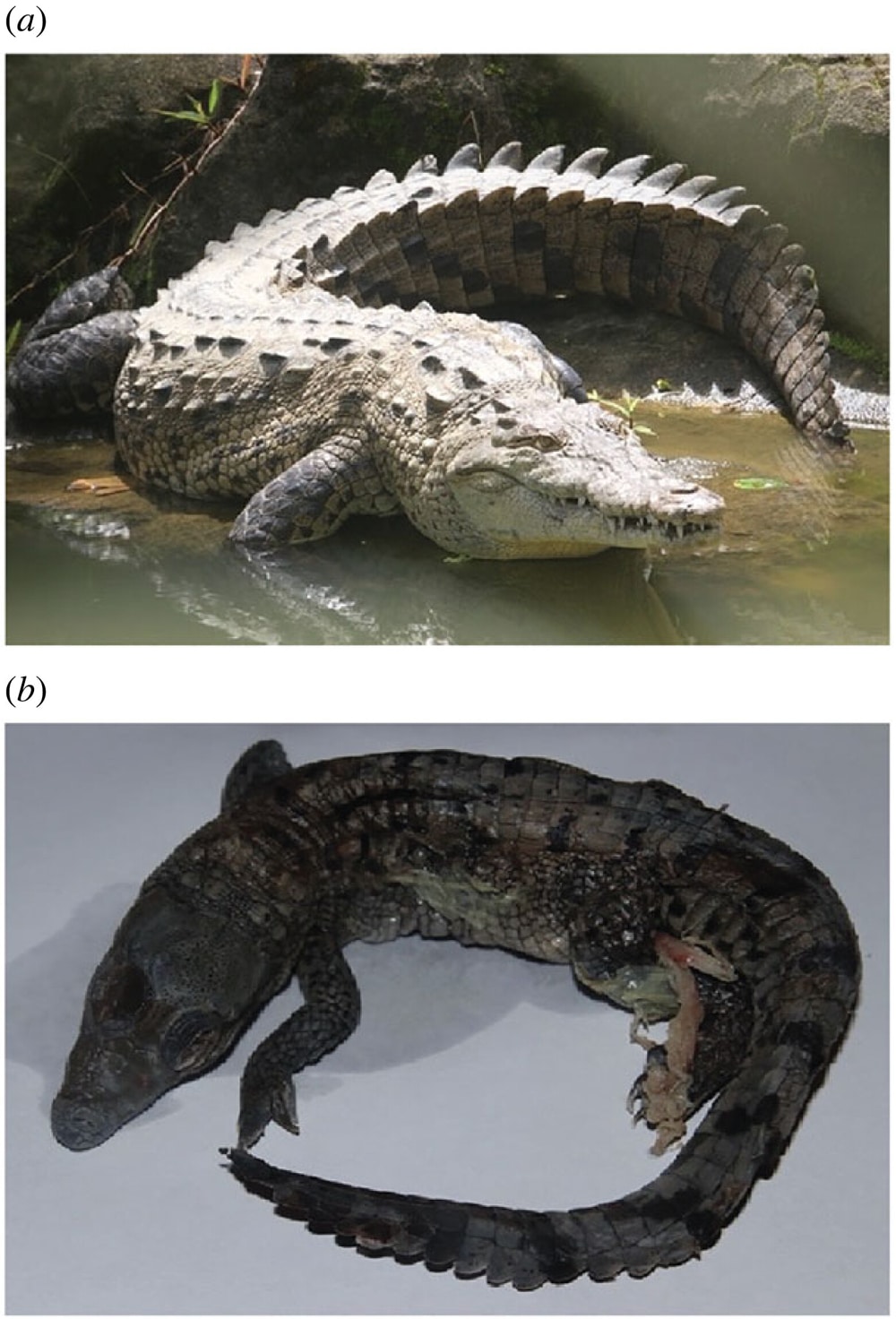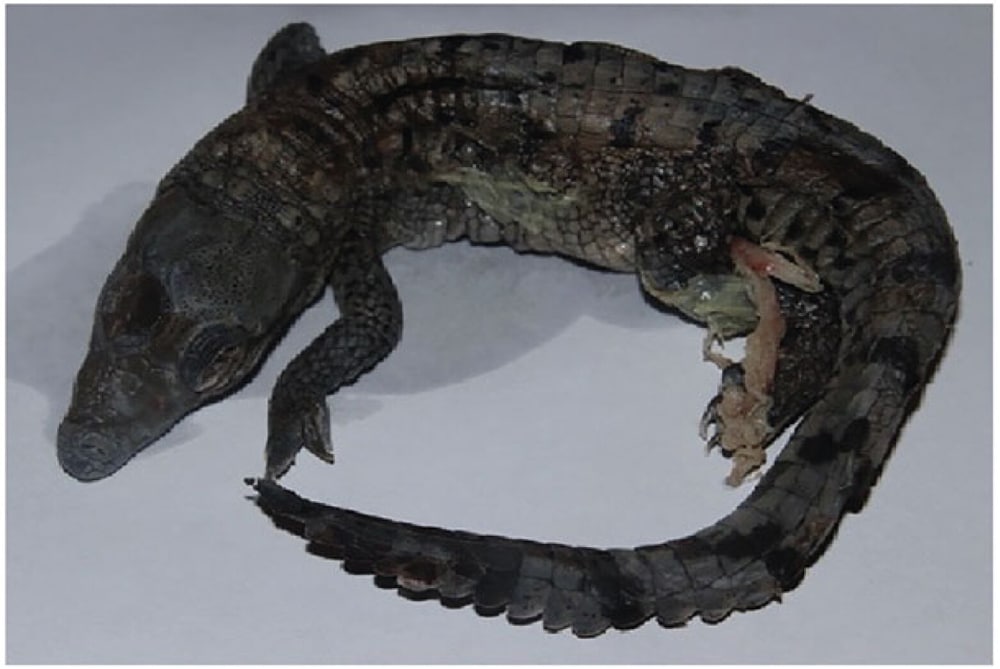This marks the first known occurrence of facultative parthenogenesis in an American crocodile.
An American crocodile (Crocodylus acutus) at the Parque Reptilandia park in Costa Rica has been kept alone for 16 years and in 2018, she laid viable eggs. The American crocodile was 18 years old at the time, having been obtained as a 2-year-old in 2002.
The researchers with Virginia Polytechnic Institute and State University, the Chiricahua Desert Museum, the Illinois Natural History Survey, Reptilandia Reptile Lagoon and Parque Reptilandia recently published a paper in the journal Biology letters detailing their findings describing the facultative parthenogenesis (essentially the female laid the viable eggs without the aid of a genetic contribution of a male.

Figure 1. (a) Adult American crocodile, Crocodylus acutus. Photo courtesy of Q. Dwyer. (b) Stillborn fetus of American crocodile, Crocodylus acutus, Parthenogen. Photo courtesy of Q. Dwyer.
“Here, using whole-genome sequencing data, we provide, to our knowledge, the first evidence of FP in a crocodilian, the American crocodile, Crocodylus acutus,” the researchers wrote in their paper. “The data support terminal fusion automixis as the reproductive mechanism; a finding which suggests a common evolutionary origin of FP across reptiles, crocodilians and birds.”
The crocodile laid the clutch of 14 eggs in 2016. None of the eggs reached full term and hatched, but the researchers determined that 7 of the eggs were viable and placed in an incubator. Unfortunately, none hatched out. And only one actually resembled a baby alligator. That specific individual was the most advanced of the seven, and genetic analysis of the baby determined that it was nearly indentical to the mother.
Komodo Dragons Conceived At Chattanooga Zoo Via Parthenogenesis
Asian Water Dragon Born Via Parthenogenesis At Washington’s National Zoo
The researchers noted in their paper that documented cases of facultative parthenogenesis is increasing thanks to the contribution of specimens from zoos with detailed records and private keepers; and the advent of modern science, such as genome scale data which the researchers say has enabled facultative parthenogenesis to be “robustly disentangled from the phenomenon of long term female sperm storage.”
The complete paper, “Discovery of facultative parthenogenesis in a new world crocodile” can be read on the Biology Letters website.


